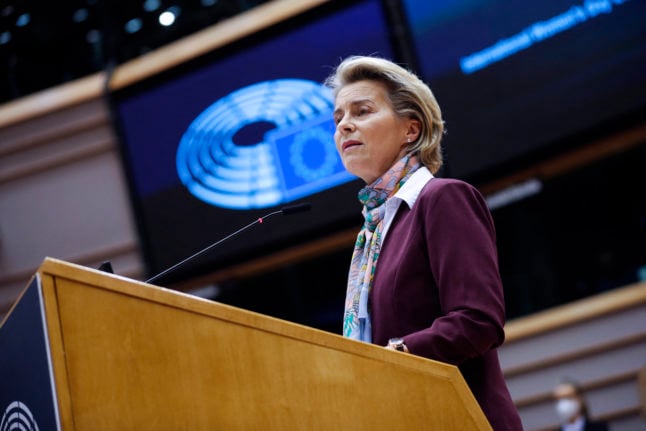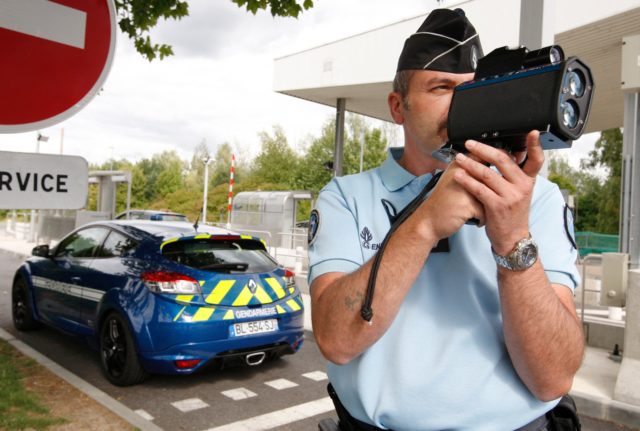EU chief Ursula von der Leyen warned on Monday that the bloc could halt further exports of the coronavirus vaccine, after Italy stopped a shipment to Australia.
“That was not a one-off,” the president of the European Commission told business newspaper Wirtschaftswoche.
Italy last week revealed it had blocked the export of 250,700 doses of AstraZeneca’s Covid-19 vaccine meant for Australia, blaming the shortage of jabs in virus-hit Europe — and the lack of urgent need in Australia.
Defending Italy’s action, von der Leyen said AstraZeneca had delivered less than 10 percent of the volumes that the bloc had ordered for December to March.
The European Commission has criticised the Anglo-Swedish company for failing to fulfil its delivery schedule to the EU, even as it supplied full doses to Britain.
Under the EU scheme, a company wanting to export outside the bloc needs to apply for permission to the national government, which decides after consulting the commission.
Chancellor Angela Merkel’s spokesman Steffen Seibert last week stressed the EU was supplying vaccines to the whole world — unlike countries such as the United States.
“We stand by this European approach, which differs from the American approach when it comes to production, for instance,” Seibert said.
100 million doses vow
As criticism rises within the 27-nation bloc over its stuttering rollout, the commission is battling to secure doses to get the pace of vaccinations back on track.
Von der Leyen said in a separate interview with Stuttgarter Nachrichten newspaper that she expected the bloc to receive 100 million doses every month from April, thanks both to higher delivery volumes and the regulatory approval of more vaccines.
The EU would receive “in the second quarter an average of around 100 million doses a month, in total 300 million by end June”, she said.
By February 26, the bloc with a population of 446 million people had received 51.5 million doses, according to official EU data.
The bloc has already approved three vaccines — BioNTech/Pfizer, AstraZeneca/Oxford and Moderna — and the European Medicines Agency is due to decide on Thursday on the Johnson & Johnson single-shot jab.
The regulator last week began a rolling review of Russia’s Sputnik V vaccine.



 Please whitelist us to continue reading.
Please whitelist us to continue reading.
Member comments